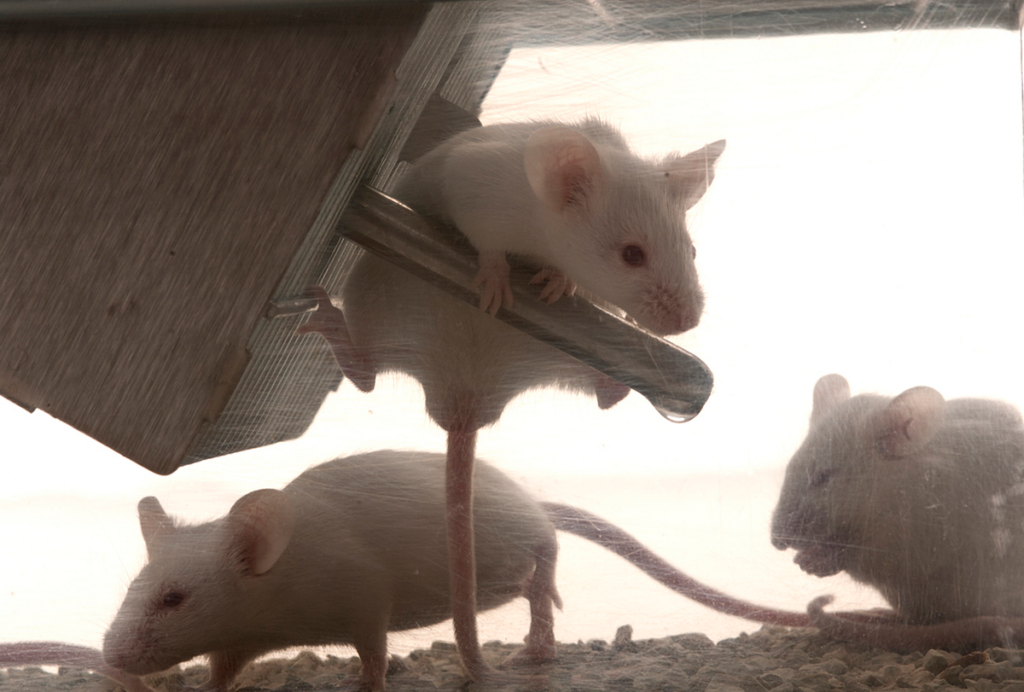Repetitive behaviors augur developmental delays in autism
Preschool-age children with autism who have severe repetitive behaviors and intensely restricted interests tend to lag intellectually and struggle with daily living skills later on.
Preschool-age children with autism who have severe repetitive behaviors and intensely restricted interests tend to lag intellectually and struggle with daily living skills later on1.
The findings support the notion that repetitive behaviors pave the way for other autism-related symptoms, perhaps by shifting a child’s focus away from important learning experiences.
“These children can’t disengage their attention from these internal monologues or visual images and get their attention focused on the outside world,” says lead researcher Deborah Fein, professor of psychology at the University of Connecticut in Storrs.
Fein and her colleagues assessed the cognitive abilities, daily living skills and severity of autism symptoms in 40 children with autism, all 8 to 10 years old. They compared these scores to ones the researchers had recorded for the same children at 1 to 2 years and 3 to 5 years. At these younger ages, the researchers had also evaluated the severity of the children’s repetitive and restricted behaviors.
The researchers found that preschool-age children who showed intense fascination with parts of objects, such as the wheels on a toy car, and had restricted sensory interests, such as sniffing objects, had lower scores on cognitive tests at ages 8 to 10 than did those with mild repetitive behaviors or restricted interests. This trend affects both verbal and nonverbal reasoning, the researchers reported 16 December in the Journal of Autism and Developmental Disorders.
Sensory signs:
The more extreme a child’s sensory preoccupation, the more severe his or her autism symptoms overall, the researchers found. And the severity of a child’s motor mannerisms, such as hand flapping, tracks with the degree of impairment in daily living skills, such as the ability to follow safety rules.
“The more their behavior becomes restricted or repetitive or idiosyncratic in certain respects, there’s a risk that it could interfere with their wider social communication development,” says James Bodfish, professor of psychiatry at Vanderbilt University in Nashville, Tennessee, who was not involved in the study.
The results hint that repetitive behaviors and restricted interests in preschool-age children augur later deficits in social and daily living skills. Findings from a 2014 study indicate that the inverse is also true. In that investigation, children who showed an early decline in repetitive behaviors were more likely to lose their autism diagnosis later on2.
But the data do not prove that repetitive behaviors and restricted interests cause cognitive delays, Fein says. In fact, the correlation between the two weakens when the researchers control for differences in predictive factors such as cognitive and language abilities. So intense repetitive behaviors at an early age could simply be a sign of more general intellectual impairment.
Treatment target:
What’s more, the researchers found no links between repetitive and restricted behaviors at age 1 to 2 and any of the characteristics measured later on. This negative result may not be meaningful, however, because some restricted behaviors, such as a strict preference for routines, may develop at older ages, Fein says.
Repetitive and restricted behaviors in toddlers may affect social and language skills in preschool even if they don’t predict school-age behaviors. So the impact of these early traits on later development might be indirect, says Jason Wolff, assistant professor of educational psychology at the University of Minnesota in Minneapolis, who was not involved in the study. “Repetitive behaviors during that 1- to 2-year period may function differently or be an expression of something different than they are at ages 3 to 5,” he says.
Experts debate whether to try to curtail restricted or repetitive behaviors. Some argue that not all of these behaviors are detrimental and some may even provide a means of coping or communicating. But if these actions lead to a worsening of autism symptoms, working to temper them could become an important part of autism therapy, Fein says. “Repetitive behaviors are just a crucial part of any clinical evaluation and treatment plan.”
References:
Recommended reading
Explore more from The Transmitter

Some facial expressions are less reflexive than previously thought



